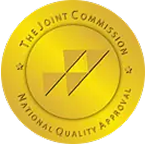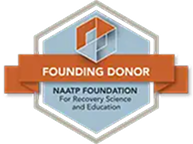Recovery Tip from a Counselor: Utilizing Tools in Long-Term Recovery

Fellowship Hall Counselor, Katherine Barron
This blog is a part of our ongoing series on recovery tips. Each month, a Fellowship Hall counselor will give our readers their very best tips for getting treatment, being successful in therapy and maintaining sobriety. Be sure to read them all.
Katherine Barron’s best tips and advice for long-term recovery.
Often you don’t realize it, but long-term recovery looks a lot like early recovery. Successful early recovery utilizes the same tools that should be used in the long-term. Part of the challenge here is that these tools or methods of supporting our sobriety can seem too simple to us as time goes on. Yes, the tools are incredibly simple, but they are effective. No matter how long you have been sober, using those tools you learned during treatment while working through the steps will always be helpful and reliable.
Something that is crucial to a successful long-term recovery is understanding when you cannot control specific situations in your life–perhaps a conflict in a work or personal relationship of yours. When you’re dealing with something like this, turn back to early steps of acknowledging powerlessness, and turn it over to your higher power, a sponsor, or the collective wisdom of a home group that you feel safe with. This seems simple, but sometimes can be difficult to do. The challenge is that in long-term recovery you may feel like you should already have it “all figured out,” but that’s not the case. There’s more of your own experience that’s available to you, but as life begins to progress and present new conflicts and challenges, you have to utilize your tools and work your program to meet the demands of the day-to-day of your recovery.
When you’re working your 12 step program, helpful habits for successful long-term recovery are:
- Going to meetings
- Talking to a sponsor
- Engaging in the community
- Working steps
- Having a prayer and meditation life
- Addressing what your personal needs are
- Connecting with an outside of the program spiritual life
- Having friends that you connect with and feel supported by inside of the rooms and outside of them.
Engaging in Service
Service is a huge part of long-term recovery. Ask yourself how you can continue to support the entities around you that allowed you to have this healthier and fuller life in recovery. Being in service of other people in the direction of help is really important because it can boost your self-esteem. This is critical because in sobriety the view we have of ourselves has to be addressed, and it is several times throughout the steps.
Humility
The fifth step says about humility, “knowing who and what we really are followed by a sincere attempt to become what we could be,” and that’s honest. That’s saying that you accept yourself where you are–even when it is difficult to do so. Humility is really important because you have to get honest with yourself in long-term recovery. Denial will protect you for a long time because sometimes it is hard to handle all of the “pieces” of yourself. You must have a safe space where you can unpack what has kept you sick and practice that humility. By addressing these things, you can then begin to grow and progress.
Acceptance
We’re living in a challenging time with the current state of the world. Recovery tools are the same but the circumstances are extreme. This is something you should pay attention to, honor and address how it affects you. Acknowledging the reality of what we’re living in right now is important. We’re always powerless but right now it’s so obvious, it’s in our face constantly, and it’s terrifying because naturally as humans we need that illusion of control to feel safe. But the tools are there for you to succeed regardless, and part of your program is accepting that feeling of powerlessness.
Forgiveness & Humor
Long-term recovery also requires a lot of self-forgiveness. That comes up in the steps, but reintroduces itself as meeting yourself where you’re at in the present moment (humility) so that you can make choices based in reality. Also a sense of humor is required–an ability to not take yourself so seriously, an ability to laugh. That sometimes gets lost in active addiction, but is important to long-term recovery.
Katherine, what would you say to someone who may be struggling to stay sober right now?
A day at a time. An hour at a time. I would say that if part of the challenge you’re facing right now is connection, you have to remember it is an action-based program. You have to take action before you feel like it. If you wait until you’re struggling to feel like it’s finally time to do something in the direction of your recovery, then you’re in danger. You have to act your way into right thinking, it doesn’t tend to work the other way around. Remember: feelings are not facts. They’re valid, and they’re important, and they’re pieces of information you need to process your life experiences, but they’re not facts.
I do think that phrase, you’re either walking towards our next use, or away from it is true. Ask yourself, am I engaging in something today that’s helping me walk towards my recovery?
Finally, reach out. You don’t have to feel like it, often you won’t. But do it anyway. You may start to feel very separate and apart but remember, so many around you are having these feelings of anger, and loneliness, and fear, and separation, and if you speak up about it somebody will step up and say me too.
At Fellowship Hall, we’re working to constantly provide support and care both on-campus and digitally those in recovery. For more information, resources, and encouragement, ‘like’ the Fellowship Hall Facebook page and follow us on Instagram at @FellowshipHallNC.
About Fellowship Hall
Fellowship Hall is a 99-bed, private, not-for-profit alcohol and drug treatment center located on 120 tranquil acres in Greensboro, N.C. We provide treatment and evidence-based programs built upon the Twelve-Step model of recovery. We have been accredited by The Joint Commission since 1974 as a specialty hospital and are a member of the National Association of Addiction Treatment Providers. We are committed to providing exceptional, compassionate care to every individual we serve.






